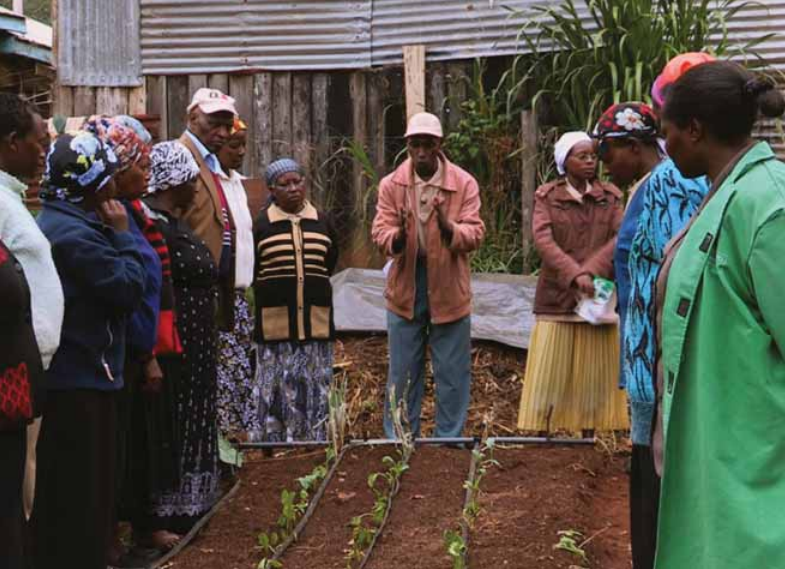Margret Ochieng is a smallholder farmer in Chinga, a picturesque town in the Central Highlands of Kenya. She can see the impact climate change is having on her life as she stands in her humble tea plantation, filling her basket with tea leaves. Many of the leaves have to be discarded as their edges are brown and wilted. Others have noticeable signs of pest infection. The scorching heat and persistent drought has taken its toll on both the quality and quantity of this year’s harvest.
 Sub-Saharan Africa is home to almost 900 million people, 60 per cent of whom, like Margret, are dependent on agriculture for their livelihood. In Kenya, the tea sector employs more than 3 million people, and smallholders account for 62 per cent of total tea production in the country.
Sub-Saharan Africa is home to almost 900 million people, 60 per cent of whom, like Margret, are dependent on agriculture for their livelihood. In Kenya, the tea sector employs more than 3 million people, and smallholders account for 62 per cent of total tea production in the country.
Despite having the world’s lowest rate of greenhouse gas emissions per person, Africa’s farmers are among the most vulnerable to climate change. Higher temperatures, variations in rainfall patterns and more frequent extreme events are threatening their livelihoods. As a result, Kenya’s tea farmers are now finding themselves in a race to adapt to the changing climate. But despite their efforts, experts are predicting that rising temperatures will make many traditional tea-growing areas unsuitable for production.
The same farmers are also under pressure from buyers who have to demonstrate to retailers that the product is ‘climate-friendly’. This means adapting their production processes to meet certain standards, such as measuring their carbon footprint. While these requirements can offer opportunities to reduce energy costs in the supply chain, they can at the same time present an unwelcome new burden for tea farmers such as Margret because compliance is often costly and technically complex.
To tackle these challenges, the International Trade Centre (ITC) has created a public-private partnership with the Ethical Tea Partnership (ETP) and two standard setting bodies, the Rainforest Alliance and FLOCERT. The project will train farmers and tea factory managers in both carbon standards compliance and adaptation to climate change. The Kenya Tea Development Agency (KTDA), which oversees tea production for more than 560,000 smallholder farmers in Kenya, is the national partner. This collaborative approach will help ensure full buy-in of the government and private sector as well as sustainability of impact once the project has finished.
A KTDA factory in Chinga, where Margret lives, is the first to pilot the training programme. There, ITC and its partners are working with factory management to prepare strategies to lower emissions and become more energy efficient. The project is also financing the implementation of these mitigation strategies. At field schools, tea farmers are receiving training in adaptation techniques such as water and soil management, choice of plant varieties and efficient energy use. And through a ‘Training of Trainers’ approach, many of the participants are also being prepared to pass on their skills to others.
Through this diversified approach, the project is able to reach Margret and the other 10,000 smallholder farmers who supply the Chinga factory – preparing them and giving them an opportunity to tackle the obstacles brought about by climate change.
This post originally appeared in ITC's International Trade Forum Magazine: http://www.tradeforum.org/article/brewing-climate-solutions-in-kenya%E2%80%99s-tea-factories/

